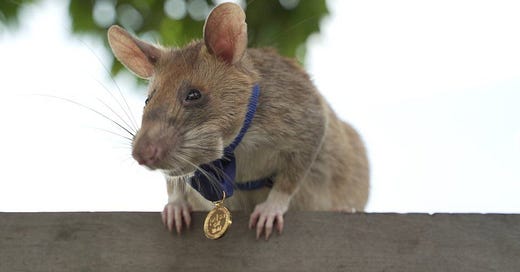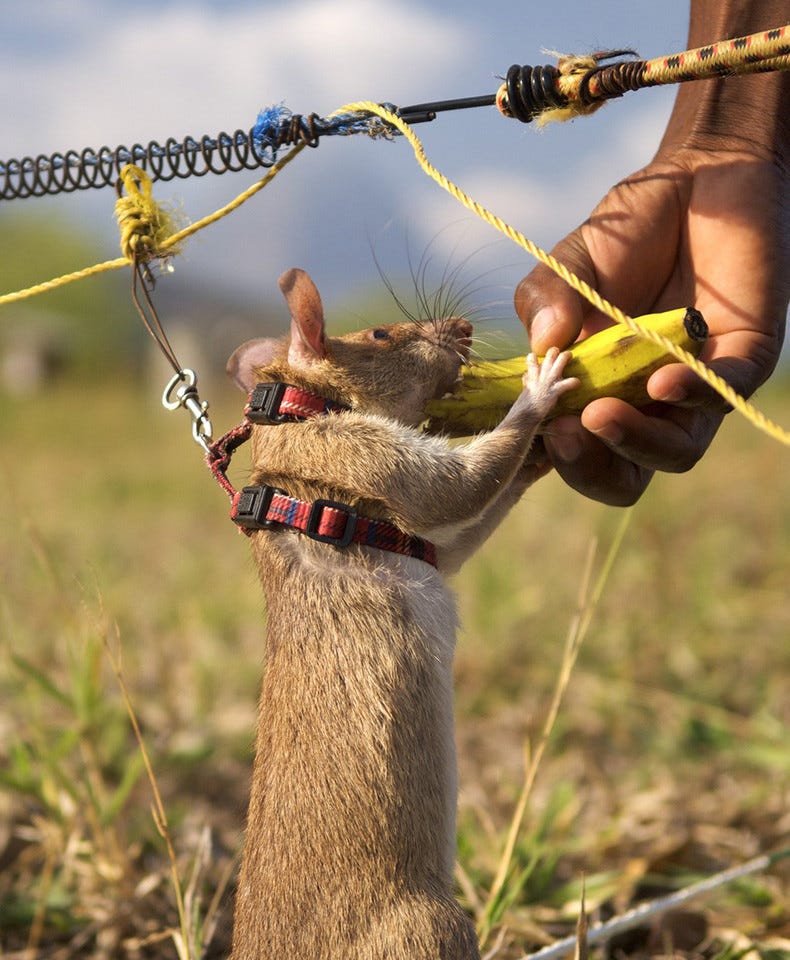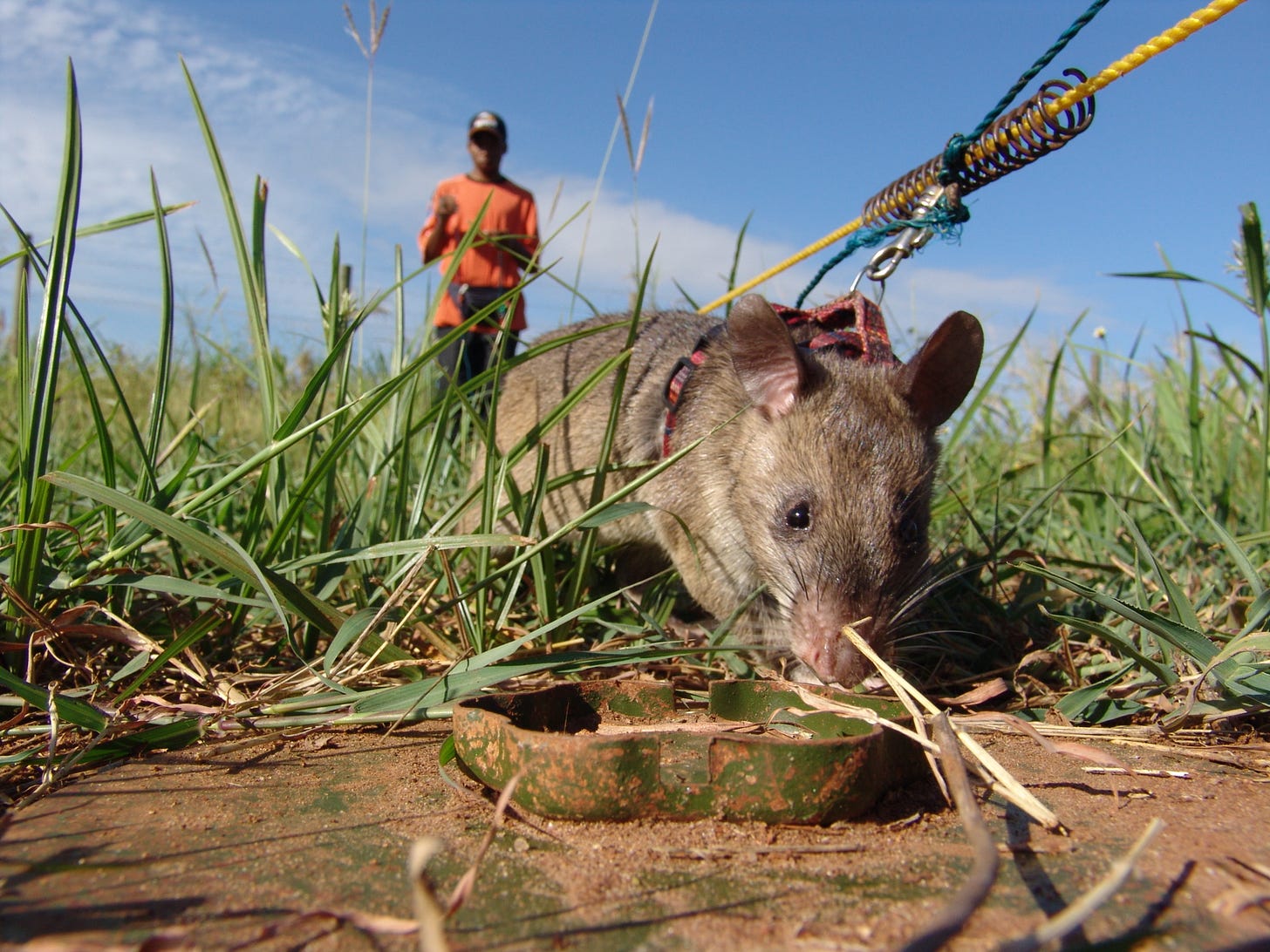Last month, at the age of eight, Magawa –– an African giant pouched rat, weighing 2.5 pounds –– passed away.
He was a special rat. During a five-year career, he sniffed out over 100 landmines and explosives in Cambodia, covering more than 1.5 million square feet of land. He could sniff out a field the size of a tennis court in under 20 minutes, a task that would take a person with a metal detector more than a day to complete. He was the most successful landmine-sniffing rat ever.
In 2020, Magawa was awarded one of the the highest animal honors –– the Gold Medal from the British veterinary charity PDSA –– for his “life-saving devotion to duty, in the location and clearance of deadly landmines in Cambodia.” Magawa was the first rat to receive the medal.
Magawa was trained by APOPO, a charity that has been training rats to detect landmines since the 1990s. APOPO lauds rats as perfect for the job, noting how they’re less expensive and more precise than dogs and how they result in fewer false positives than medal detectors (the mainstream technology). Rats are fast, too light to set off a landmine, and have a great sense of smell. In other words, they’re perfect for spotting landmines.
Traditionally, landmine detection has been a militarized activity. The people who work in the deactivation industry are former soldiers; thus, they follow a military structure, and they wear soldier-inspired uniforms. Given Cambodia’s history of military corruption and unprompted military violence, the industry’s militaristic associations create an antagonism toward the demining operations. Citizens would sometimes jeer at and taunt the deminers from the sides of mine fields.
Until Magawa and his rat coworkers arrived. The presence of rats challenged the military identity of the demining platoons. Just imagine it: A bunch of people in military uniforms putting sunscreen on rats and walking rats around on leashes. A bunch of rats crawling up people’s arms and gently nibbling on their necks. It’s hardly a threatening sight. In the words of one deminer: “At first, I thought of rats as pests, but now I think of them as my very best friends.”
Thus, according to anthropologist Darcie DeAngelo, the use of rats in Cambodian demining efforts disrupted the militarism that had long been associated with landmine detection.
In turn, marketing around the Cambodian demining effort also shifted. Prior to the rats, nonprofits used images of landmine victims and heroic demining soldiers to solicit donations. APOPO, though, uses cute rat photos, showing pictures of their furry friends walking around, playing, and dressed in Christmas attire. This shift in framing –– a demilitarization of demining marketing –– is key to APOPO’s work: The nonprofit thinks the military procedures, with their hierarchy and redundant reporting lines, slow down the detecting process. The rats, therefore, can break through the military stigma and help speed up demining efforts.
Magawa both demined the fields of Cambodia and demilitarized an industry, one sniff at a time.
Notes:
Magawa’s death got quite a bit of media coverage: CNN, BBC, NPR.
Here’s an article on Magawa winning the PDSA Gold Medal.
More info on APOPO can be found here.
Darcie DeAngelo’s paper on demilitarization and rats can be found here, along with a popular article here. Deminer quote is from her work.
APOPO writes of Magawa’s final days: “Magawa was in good health and spent most of last week playing with his usual enthusiasm, but towards the weekend he started to slow down, napping more and showing less interest in food in his last days. Magawa had recently celebrated his birthday in November, reaching the grand old age of 8.”






